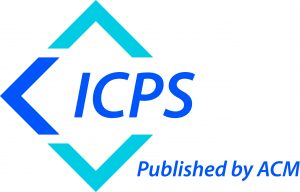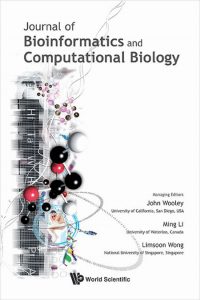Welcome to
The 10th International Conference on Computational Systems-Biology and Bioinformatics (CSBio 2019)
Nice (France)
December 4 to 7, 2019
Presentations. Full paper presentations will have a slot of 30 minutes (20 minutes for the presentation and 10 minutes for questions). Flash presentations will have a slot of 10 minutes (8 minutes for the presentation and 2 minutes for questions). Speakers are requested to bring their PDF slides in a USB key and to arrive before the beginning of their session.
New: Due to several requests, we are happy to announce a “flash presentations” call for CsBio 2019. Prospective authors who intend to present their ongoing work in the scope of CsBio 2019 are invited to send by
* September 5th, 2019 * a PDF abstract of maximum 1 page by e-mail at edemaria@i3s.unice.fr and morgan.magnin@ls2n.fr The following format should be used:
https://fr.overleaf.com/latex/templates/simple-single-page-abstract-template/kwzyytrntryp
The authors of selected abstracts will make a short presentation (8 minutes of presentation + 2 minutes of questions) in a dedicated session at Csbio 2019.
With the advancement in next-generation molecular technology in generating the high-throughput “omics” data, life science has come to the era of “big data”. To extract biological knowledge from the data and translate it into benefits for society (e.g. better medicine and healthcare), novel and advanced computational tools are needed for data analysis.
The call for paper targets contribution in the field of computational approaches designed to face the challenges aroused by biological systems. It aims at giving an overview of the cutting-edge methods and tools to address biological systems.
CSBio 2019 would like to invite researchers and industrial counterparts to meet at this event to exchange ideas and stimulate research collaborations.
Topics of interest include, but are not limited to:
– Adaptive computation in bioinformatics
– Bio-data visualization
– Bio-inspired computing
– Biological network reconstruction and analysis
– Biomarker discovery
– Disease classification
– DNA, RNA and protein sequence analysis
– Drug discovery and validation
– Epigenetics/epigenomics
– Formal validation of biological systems
– Functional genomics
– Gene expression analysis
– Medical and biomedical informatics
– Modeling and simulation of biological processes, pathways, etc.
– Molecular evolution and phylogeny
– Next-generation sequencing
– Parallel and distributed computing for life science
– Population genetics
– Proteomics & other omics
– Protein folding
– Translational bioinformatics
Submitted papers should describe original work that does not overlap with papers that have been published or that are simultaneously submitted to a journal, conference, or workshop with refereed proceedings. Papers should be written in English, formatted according to the ACM SIG style (sigconf template), should not exceed 8 pages and must be submitted via the EasyChair system. More information about the formatting of the paper can be found at http://www.acm.org/publications/article-templates/proceedings-template.html/
Papers must be submitted electronically as PDF files via EasyChair. The limit for submissions is 8 pages. References and appendices will not not be counted in the page limit during the initial submission process.
All submissions will be peer-reviewed and all accepted papers must be presented at the conference.
The proceedings will be published electronically through ACM Digital Library.
A list of selected papers will be published in the Journal of Bioinformatics and Computational Biology (JBCB).


